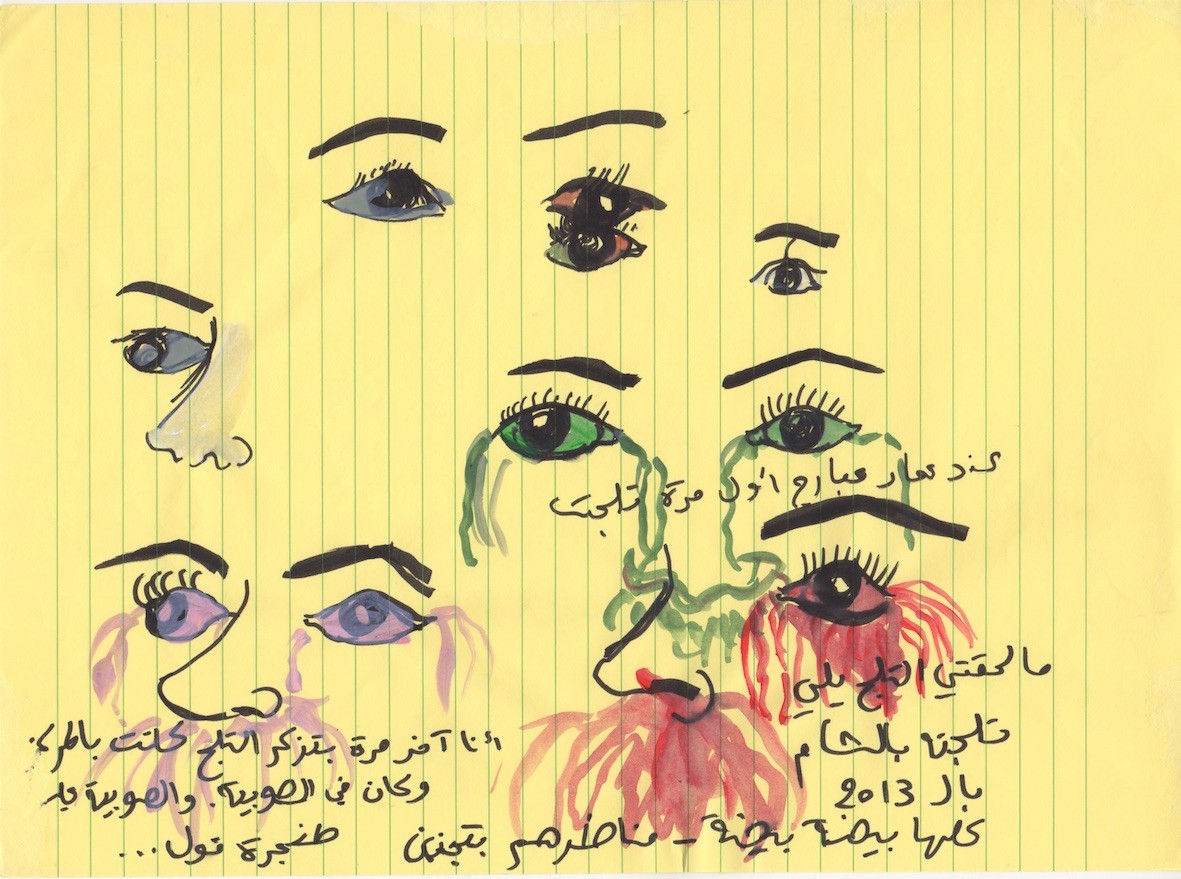Traces of Displacement - Exhibition telling stories about displacement launches at the Whitworth Art Gallery
The Whitworth presents Traces of Displacement, an exhibition using the Whitworth’s collection to address one of the major humanitarian concerns of the 20th and 21st centuries – forced displacement from 7 April 2023 until 7 January 2024.

Forced displacement is one of the most urgent issues of our time, but it is not new. Conflict,
persecution and environmental devastation have, throughout history, led people to flee their homes and seek safety elsewhere.
Traces of Displacement presents a fragmentary, yet compelling, set of stories about displacement.
It has been developed from deep research into how stories of forced migration can be told using the Whitworth’s collection of art, textiles and wallpaper. With almost 80 works and objects included in the exhibition, the works of art selected reveal how artists experience and witness social, cultural and political upheaval.
They are important historical documents that can challenge dominant narratives and familiar aesthetic tropes of refugees. These are not just images of conflict or trauma — they are much more human than that — they make space for critical dialogue, testimony, resilience and humour.
Traces of Displacement draws on the expertise of a team of University of Manchester academics as part of an Arts and Humanities Research Council project: Understanding Displacement Aesthetics led by Professor Ana Carden-Coyne, Dr Chrisoula Lionis and Dr Angeliki Roussou. Together with the Whitworth’s curator Dr Leanne Green and a focus group of advisors with lived experience or heritage of displacement, they have planned an exhibition that uncovers stories of persecution, creativity and resilience.
Professor of History Ana Carden-Coyne, Director, Centre for the Cultural History of War, The University of Manchester said:
“The exhibition aims to move beyond the images and representations of a refugee, as art reveals a more nuanced, complex story driven by artists and creative people with lived experiences who have the insight, the creative imagination and the resilience with which to share their own stories. Bringing about new ways of seeing, new voices to the table, and new images and textiles that open the narrowest fields of vision towards something that shifts our collective thinking away from a fixation with ‘crisis’, boats, tents and mobile peoples - towards acknowledging histories that are incomplete.”
Professor Carden-Coyne added: “We find that the past can shine a light on the present. While forced migration appears to be a topical issue today, Traces of Displacement also demonstrates its historical breadth. Underpinned by two years of extensive research by academics, curators and artists who have a heritage of forced displacement. Poignant themes emerged from the art works selected, includes asylum rights vs. detention to humanitarianism and the politics of rescue and trauma and gendered experiences.”
Traces of Displacement reflect the contemporary and historical experiences of displacement. Historical lines of inquiry range from colonialism and the slave trade, to the first and second world wars, and the impact of climate change. Contemporary asylum-seeking experiences are explored with portrayals of displacement and detention shown alongside reflections on personal, collective, and inherited trauma that follows in its wake.
The seven collaborating advisors with heritage of forced displacement, are also creative practitioners and embarked on this project using their own artistic creations and interventions to share their experiences. Using painting, textile, poetry, storytelling, video and recorded conversation, these artists share key insights to visitors.
Dr Leanne Green, Curator of Modern and Contemporary Art, at the Whitworth said:
“Traces of Displacement is a truly unique exhibition, because it emerges from the Whitworth’s extensive collection of art, textiles and wallpaper and other loaned works. Together these objects expose a multitude of very human stories that speak to the diverse, personal and individual experiences that cause people to flee their home. This exhibition demonstrates the importance of art and artists in helping us to understand, have empathy and gain perspective on forced displacement. Together, the works in Traces offer space for critical dialogue, testimony, resilience and humour.”
Whilst the exhibition has been curated in collaboration with a group of advisors with lived experience or heritage of displacement, Traces of Displacement does not attempt to tell a complete story of forced migration — reflecting the inability of the collection to represent some histories, geographies and experiences. Loaned works of art have enabled the Whitworth to address some gaps, and the gallery intends to make more permanent change by adding work to the collection in the coming years.
The exhibition includes a recently acquired work by Mounira al Solh titled, I strongly Believe in the Right to be Frivolous, 2012-ongoing, this acquisition has been generously supported by the Friends of the Whitworth.
For further press information, images and interview requests please contact Communications Manager, Melissa McFarlane on: 07795625935 or Melissa.McFarlane@manchester.ac.uk.

